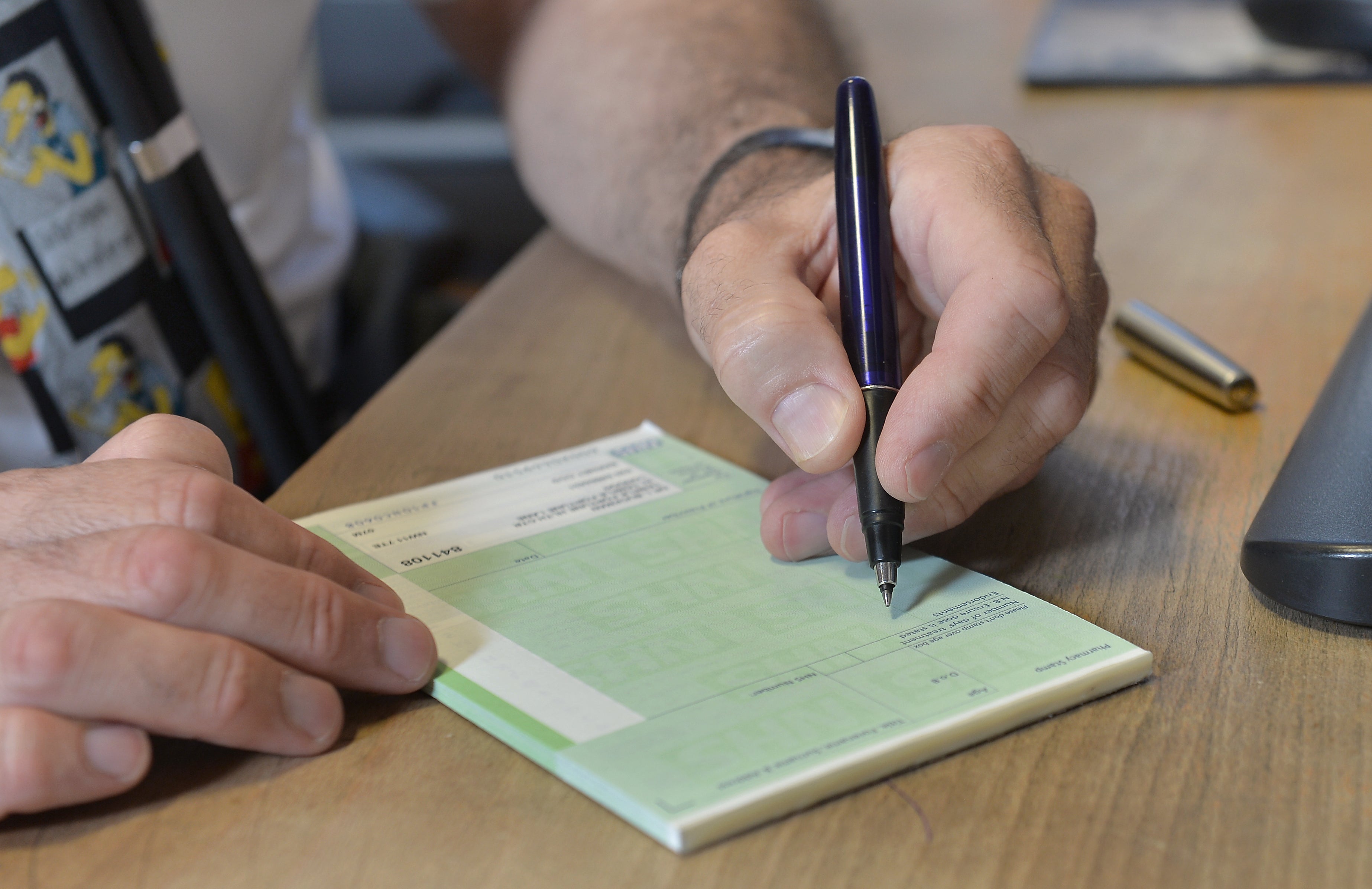Women warned not to swap HRT drugs amid supply issues
It comes after an MP admitted sharing medication with a colleague.

Your support helps us to tell the story
From reproductive rights to climate change to Big Tech, The Independent is on the ground when the story is developing. Whether it's investigating the financials of Elon Musk's pro-Trump PAC or producing our latest documentary, 'The A Word', which shines a light on the American women fighting for reproductive rights, we know how important it is to parse out the facts from the messaging.
At such a critical moment in US history, we need reporters on the ground. Your donation allows us to keep sending journalists to speak to both sides of the story.
The Independent is trusted by Americans across the entire political spectrum. And unlike many other quality news outlets, we choose not to lock Americans out of our reporting and analysis with paywalls. We believe quality journalism should be available to everyone, paid for by those who can afford it.
Your support makes all the difference.Women are being urged not to swap menopause medicines amid a shortage of a certain type of hormone replacement therapy (HRT).
The British Menopause Society said it is important for women to understand that there are alternatives to the type of drug which is in short supply.
It comes after reports that the shortage is leading women to buy, swap or share medication with other women.
Conservative MP Caroline Nokes said she had been given Oestrogel by a fellow MP, and that she had been contacted by an “avalanche” of “hugely anxious women”.
Speaking to BBC Breakfast, she said: “It’s the stories about women rationing the supplies that they have, trading oestrogen gel with their friends… all of this led me to raise it in the House last week, and it’s been an avalanche of correspondence since with women describing to me increased anxiety because they don’t know whether their next prescription will be filled.”
She added: “Carolyn Harris (is) an absolute goddess, she’s given me a pump of Oestrogel, but it shouldn’t be like that.”
Professor Anne MacGregor, specialist in women’s health and member of the British Menopause Society’s medical advisory council, said women should not swap medicines with one another.
She told the PA news agency that women and their GPs are being advised to look into alterative drugs which have the same effect.
“There are enough other available options of different preparations out there that they shouldn’t need to (swap medicines or buy black market products).
“But obviously they need to have the information and their GPs need to have the information of what equivalent preparations there are.
“I’ve had a few patients who, when they have changed, they’ve actually stayed on what they’ve changed to because they found it suits them better so it’s not necessarily a negative switch for everybody.”
Prof MacGregor added: “The effect of the HRT is the same whichever way you give it, so much of the choice of the type of preparation comes down to what the woman wants after a discussion over what options are available.”
She said the main concerns have arisen when women go to collect their prescriptions and they are being told there is none of the medication available, and, for some, when they go back to their doctor, the GP is unaware of what other options are available,
“I’ve had patients who I’ve given them the link to what the alternative preparations are and they’ve actually given them to their pharmacist and to their GP,” she added.
“We’ve had quite a lot of emails recently from women that we see in the menopause clinic saying ‘What should they take instead?’ And we actually direct both them and their GPs to the British Menopause Society website, which has got not only information regularly updated on HRT supply, but also what HRT preparations are available and what their equivalents are as well.”
The shortage of oestrogen gel in the UK has occurred following soaring demand over the last few months.
The company that provides the gel is urgently trying to meet demand.
We are concerned that there are ongoing shortages of some types of HRT. These shortages will be distressing for those affected, and it is disappointing that women are once again faced with barriers to access healthcare
Dr Edward Morris, president of the Royal College of Obstetricians and Gynaecologists, said: “In recent years, it has been great to see awareness and education around the effectiveness of HRT grow, and we now need to see supply meet the increasing demand.”
He added: “We are concerned that there are ongoing shortages of some types of HRT.
“These shortages will be distressing for those affected, and it is disappointing that women are once again faced with barriers to access healthcare.
“We strongly encourage women who have been affected by these shortages to speak to a healthcare professional, as there are alternatives are available. There is no one-size-fits-all when it comes to the menopause, and, if an exact match is not available, healthcare professionals will be able to advise other treatment options.
“While we recognise that, unfortunately, there is not a quick fix to these shortages, we are working with the Government to ensure that every solution to address supply issues are explored.”